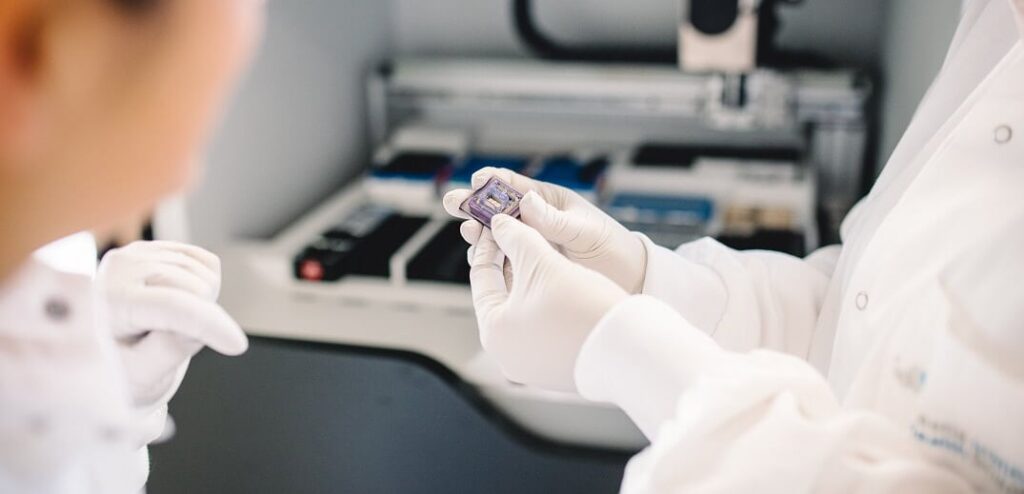Especialistas da Nestlé desenvolvem novo banco de dados para identificar melhor as plantas de café mais resistentes ao clima

Em resposta à ameaça existencial que as mudanças climáticas representam para o cultivo do café, a equipe de especialistas da Nestlé é pioneira em abordagens inovadoras para mitigar seu impacto no café arábica, a espinha dorsal da indústria. Como uma parte significativa da produção mundial de café depende do café arábica, que é particularmente vulnerável ao aumento das temperaturas e às doenças exacerbadas pelas mudanças climáticas, a Nestlé está liderando os esforços para desenvolver variedades de café mais resistentes usando técnicas avançadas de ciência de dados e inteligência artificial.
O café arábica, que constitui cerca de 70% da produção global de café, enfrenta desafios como a redução da disponibilidade de terras aráveis e a escassez de água devido às alterações dos padrões meteorológicos induzidas pelas alterações climáticas. Para salvaguardar o futuro da cafeicultura e manter os meios de subsistência dos agricultores, os cientistas de plantas da Nestlé estão trabalhando para identificar e cultivar variedades de café arábica que apresentem maior produtividade, maior resistência a doenças e tolerância à seca.
O desenvolvimento de um genoma de referência de alta qualidade do arábica, obtido por meio de metodologias de ciência de dados de ponta, é fundamental para esse empreendimento. Esse genoma de referência, agora acessível ao público em um banco de dados digital, facilita a análise precisa de várias características do café, incluindo potencial de rendimento, tamanho da cereja, resistência a doenças e perfis de sabor.
Não perca essa chance! Assine nosso boletim informativo para receber o conteúdo mais recente diretamente em sua caixa de entrada ou registro GRATUITAMENTE para obter acesso total.
Jeroen Dijkman, Diretor do Instituto de Ciências Agrícolas da Nestlé, comparou o novo genoma de referência a um mapa abrangente de uma cidade movimentada, permitindo aos cientistas identificar marcadores genéticos cruciais responsáveis por características específicas em plantas de café maduras. Esse recurso capacita os pesquisadores, não apenas dentro da Nestlé, mas também em toda a comunidade científica, a identificar, selecionar e criar variedades aprimoradas de café arábica com precisão e eficiência.
A publicação desse trabalho em Genética da natureza ressalta sua importância no âmbito da pesquisa de plantas. Patrick Descombes, Especialista Sênior em Genômica da Nestlé Research, enfatizou a qualidade excepcional dos esforços da equipe, aproveitando metodologias genômicas de última geração para criar uma referência inigualável de arábica.
Os esforços de colaboração com instituições acadêmicas de renome em todo o mundo, incluindo o Instituto Nacional Francês para o Desenvolvimento Sustentável (IRD) e as principais universidades de Cingapura, Brasil, Estados Unidos, Uganda, Finlândia, Alemanha e Bélgica, foram fundamentais para o avanço dessa pesquisa. Esse consórcio global exemplifica o compromisso coletivo de lidar com os desafios urgentes enfrentados pelo cultivo do café.
A dedicação da Nestlé à inovação e à sustentabilidade vai além dos laboratórios de pesquisa, com resultados tangíveis que já estão surgindo nas regiões produtoras de café. Através de iniciativas como a Plano Nescafé 2030No Brasil, a Nestlé está colaborando diretamente com os agricultores para cultivar variedades de café de elite desenvolvidas por seus especialistas em fitotecnia. Somente em 2022, mais de 6 milhões de mudas foram distribuídas, sinalizando um progresso tangível em direção a um setor cafeeiro mais resiliente e sustentável.


Respostas